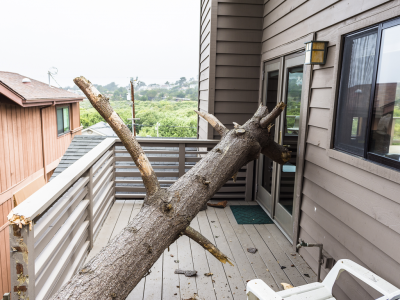
Homeowners Insurance: A Primer for New Homebuyers
Buying a home involves many decisions. It’s easy to get preoccupied with finding the perfect house in an ideal neighborhood while overlooking other critical decisions, like homeowners insurance. What is it, and why do you need it?
Homeowners insurance is a type of property insurance that covers losses and damages to your residence, potentially including interior furnishings, personal assets, and liability protection against any accidents that might occur on your property. Other types of property insurance include renters insurance, flood insurance, and earthquake insurance.
Homeowners insurance should not be confused with mortgage insurance or home warranties.
Lenders will not allow your closing to proceed unless a homeowner’s insurance policy is in place, so it’s essential to shop for coverage early. Often, the premium payments are handled through an escrow account, along with property taxes.
What is covered by homeowners insurance?
Homeowners insurance is designed to cover catastrophic events, such as structural damage from a tree that landed on your roof during a storm, or a kitchen fire that created extensive fire, smoke, and water damage.
Deductibles tend to be high, and multiple claims can increase your premiums. So it’s best to handle smaller repairs yourself and reserve claims for more significant problems.
That said, policies do not typically cover natural disasters like earthquakes or floods. If you live in an area prone to these occurrences, you may need additional coverage to insure your property against losses.
In addition to property repairs, standard policies typically repair or replace personal belongings damaged or lost in a covered event. They’ll also pay medical expenses if someone is injured on your property. Exclusions and limits vary.
How much coverage will you need?
Homeowners insurance is designed to bring your home back to a livable condition in case of a catastrophe. That cost is not the same as your purchase price.
Typically, insurance companies will deduct your land value, since it’s not a factor in rebuilding your house.
However, rebuilding costs usually increase over time. That’s why it’s a good idea to consider guaranteed replacement cost coverage, which pays the full cost to rebuild, regardless of the amount listed on your policy.
What affects the cost of premiums?
Insurance companies examine many factors when quoting a policy rate. Some of them relate to the property, and others relate to you as the policyholder.
For example, your credit score can play a role. Since a low credit score indicates poor credit management, insurers assume it also suggests that someone is less likely to manage a property and maintain its condition.
Some buyers are surprised to learn that the sellers’ previous loss claims are also used to calculate premiums and potentially deny coverage. As a contingency, you may want to ask the sellers to provide an insurance claims history report, also called a CLUE report, which details claims made over the past five years.
There is no cost to obtain a CLUE report, but current property owners must make the request.
How to find providers?
Insurance companies won’t be able to quote a price on homeowners insurance until you’ve identified the home you want to buy. However, you’ll be busy handling many details once you’re under contract, so it pays to research options in advance.
Ask your Accredited Buyer’s Representative for recommendations, based on past buyers’ experiences.
Customer satisfaction is often a good indicator. You can visit your state’s Department of Insurance site for ratings on companies licensed to conduct business in your state.
J.D. Power publishes an annual Property Claims Satisfaction Study, which may also help identify top providers.
